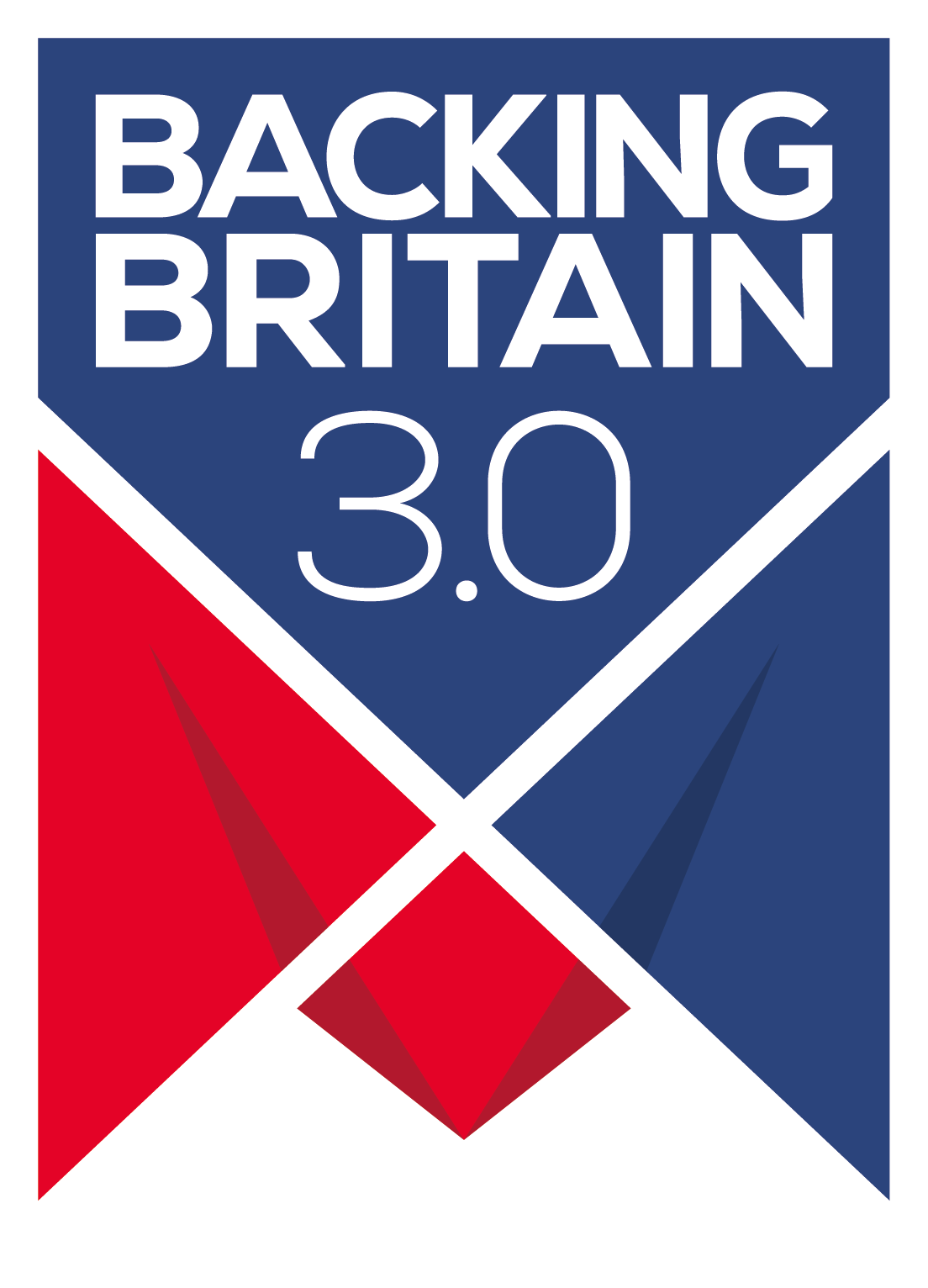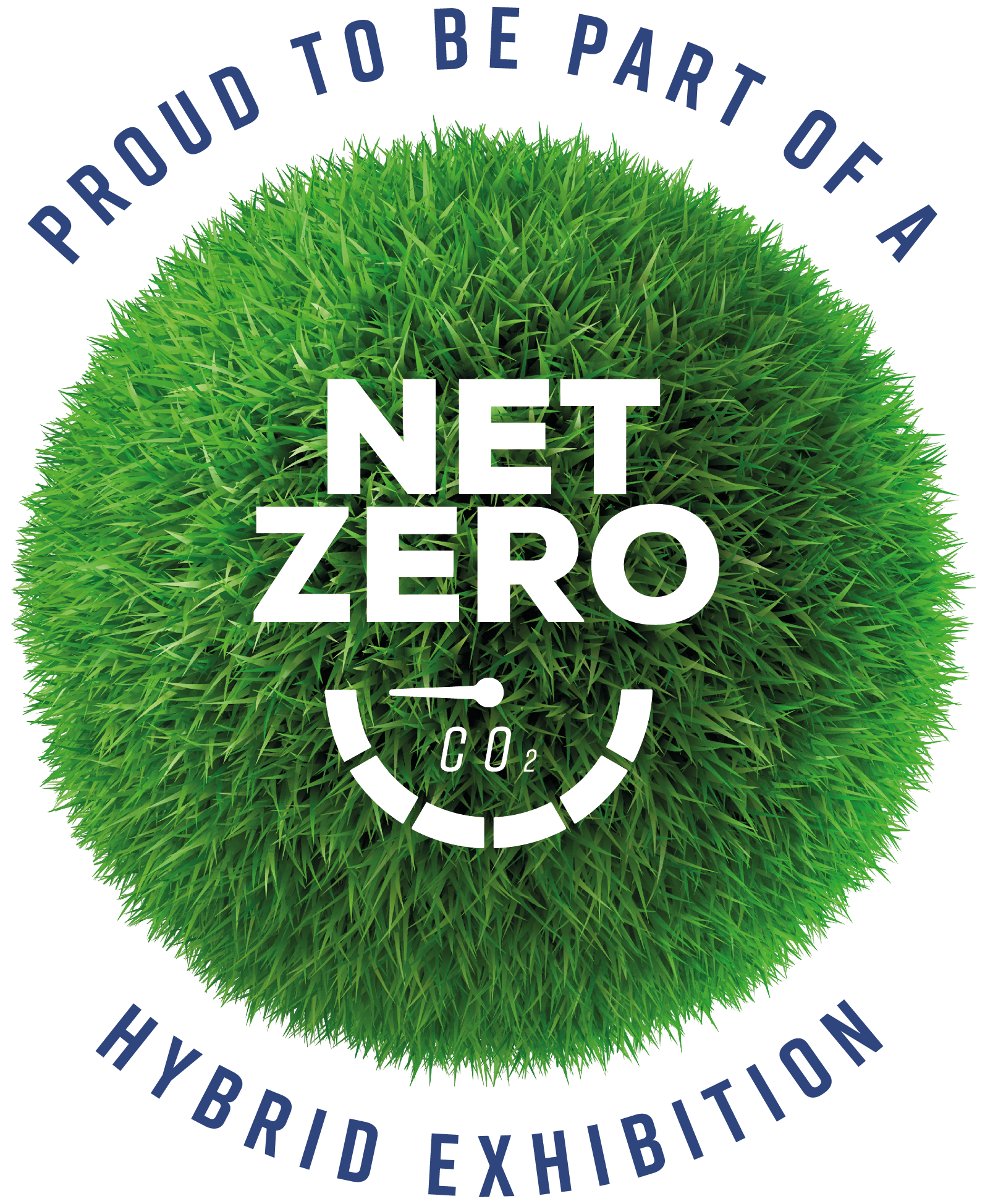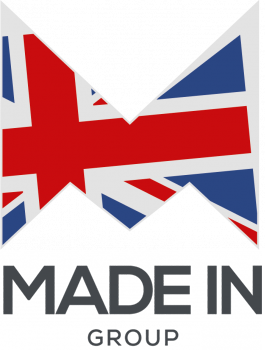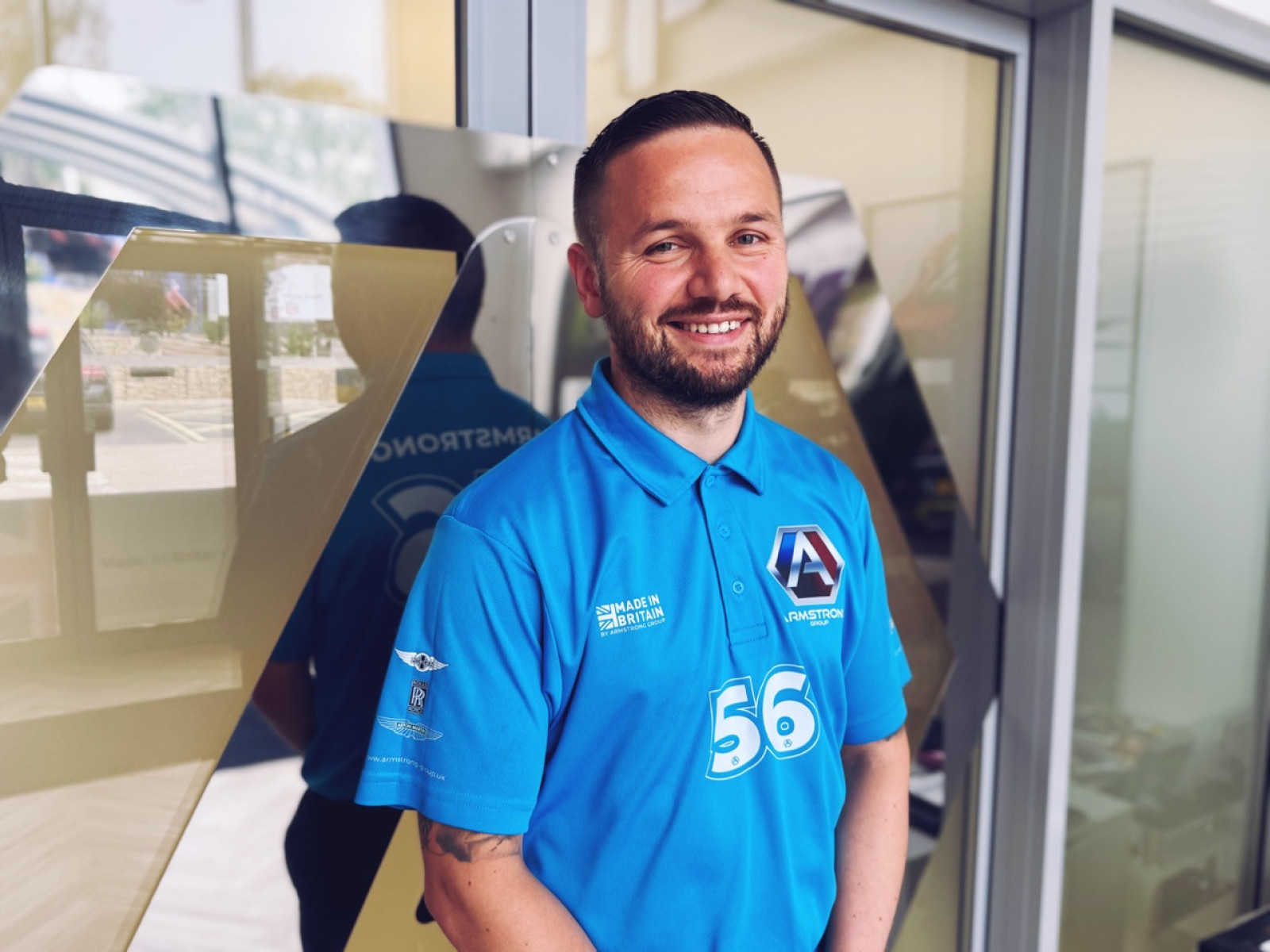
The Handshake That Changed Everything: Ryan Lally, Leader Made in Armstrong
By Ilona Pitt, Made in the Midlands
The tank statue stands guard as you turn into the car park at Armstrong Group in Coventry, Union Jacks bright against the Midlands sky. A fitting sentinel for a company embedded in British engineering, from supplying some of the nation’s most iconic automotive marques to its latest strides in aerospace and defence.
Inside, the message is clear: towering posters of the team smiling from the shop floor walls. The blue ‘56 crest, a nod to 56 Bayton Road, is worn on every uniform, marking a shared identity.
Precision components gleam under bright lights, bound for Bentley, McLaren, Morgan, and now Rolls-Royce. The air hums with the rhythm of advanced machinery, robotics moving with exactness. Over 160,000 square feet dedicated to precision engineering, with new lines and equipment driving steady growth across three interlinked units.
And somewhere in that noise and light walks a man who first came here as a shy 16-year-old apprentice in 2011, when the place felt, in his words, like “a Fred in a shed” - a phrase for something makeshift and uncertain. It would take years - and one firm handshake - to bring it together.
Ilona Pitt: Let’s go back to day one as an apprentice. What did you walk into?
Ryan Lally: It was 2011, under a different name and ownership. I was 16. Shy. Honestly, a bit scared. My first day, I was chaperoned round what felt more like a building site than a factory. A ghost town. Ten people on the floor. A few machines running, others gathering dust. I called it “a Fred in a shed” because that’s how it felt.
IP: For most, it might have been just a stop-gap job. For you, it was the start of something lasting.
RL: It was small, but there was something worth holding onto. You couldn’t always see it, but you could feel it. I guess I just never let go.
IP: You didn’t come in alone - your family path runs through here too. How did that shape you?
RL: My uncle got me in for school work experience at 14, then I came back as an apprentice. My dad joined after me, then my brother. Having family around grounded me. It made me care more about getting it right for the people next to me. Regardless of the storms, I stayed because I cared. Within 18 months, the team was bigger. I’d finished my apprenticeship, taken on new tasks, and started training others.
IP: By 2017 you were a production manager, leading people twice your age. How did you earn it?
RL: I’d seen managers go too soft - nobody knew where the line was. I’d seen others go too hard - and all they got back was resentment. I didn’t want either. So I took the best and worst from every manager I’d worked under and built my own style. Respect first. Be clear. Give people the tools to do the job and they’ll usually get it done. Long before my qualification in 2019, the proof was in the way people turned to me when decisions had to be made.
IP: Some titles you earn on paper. Others you earn when people start looking for you in the room.
RL: That’s when you realise it’s not the title that matters - it’s that quiet turning point when people stop waiting to be told and start trusting you to stand there with them, shoulder to shoulder.
IP: The current management team arrived in 2020. What was the company like leading up to that?
RL: We still had some of those big-name contracts, work we could be proud of, but the business was under strain. The focus was on making the most of what we had, not on what was next. The place was busy, but cluttered. You could hear it in the stop-start of the machines, see it in the crowded walkways. Without a clear direction, we were firefighting. The people worked hard, no question. But the business itself was close to breaking point. We had more to give, we just needed the chance - and the belief - to bring it together again.
IP: Richard Lindoe, Managing Director of Armstrong, still talks about that handshake in July 2020. What did you see at that moment?
RL: It was the middle of COVID, and the place was in a dark spot. We’d lost people, good people, and some had been let go. I’d stayed. Not because it was easy, but because I couldn’t walk away. This place wasn’t just where I worked - it was like family, and you don’t leave family when things get rough. Richard walked in, shook my hand, and started talking about where we could go. Not just surviving, but growing. He was looking at the same factory I’d worked half my life and seeing something bigger. That’s when I knew: the fight was back, and so was the belief.
IP: Two hands meeting in the middle of a pandemic - one carrying the weight of a business through its darkest months, the other holding a vision of where it could go.
RL: That’s exactly how it felt. From the start, Richard wasn’t just the managing director, he was present. He’d ask about my work, but also about my family. He wanted to know what was really going on, and you could feel that it mattered to him. I feel genuine gratitude for Richard, particularly for helping me develop my skills in dealing with customers and understanding the broader business strategy. For me, he’s been a mentor in every sense. His enthusiasm shows not just in the boardroom but across the whole business - in conversations on the shop floor and in everyday exchanges with people.
IP: It feels that 2020 handshake was a pivotal moment in your career.
RL: Yes. The biggest shift was clarity. Suddenly we had a vision: where we wanted to go, how we were going to get there, and why it mattered. We invested in the right places, opened new opportunities, built momentum. In 2020, turnover was £9m with 109 employees, heading towards another loss, but Richard got the business to break even. By the end of 2025, we should be at £30m and more than 180 employees. With continued investment in people and technology, we’re on target to reach Richard’s objective of £60m by 2028. We can do it - with the team we have. But none of it would have worked without the people already here. They knew the place inside out. They’d been through the hard yards. They cared. When the changes came, they didn’t dig in - they got stuck in. That’s the part I’m proudest of. Growth hasn’t just been down to new machines or contracts. It’s because those same people moved with us.
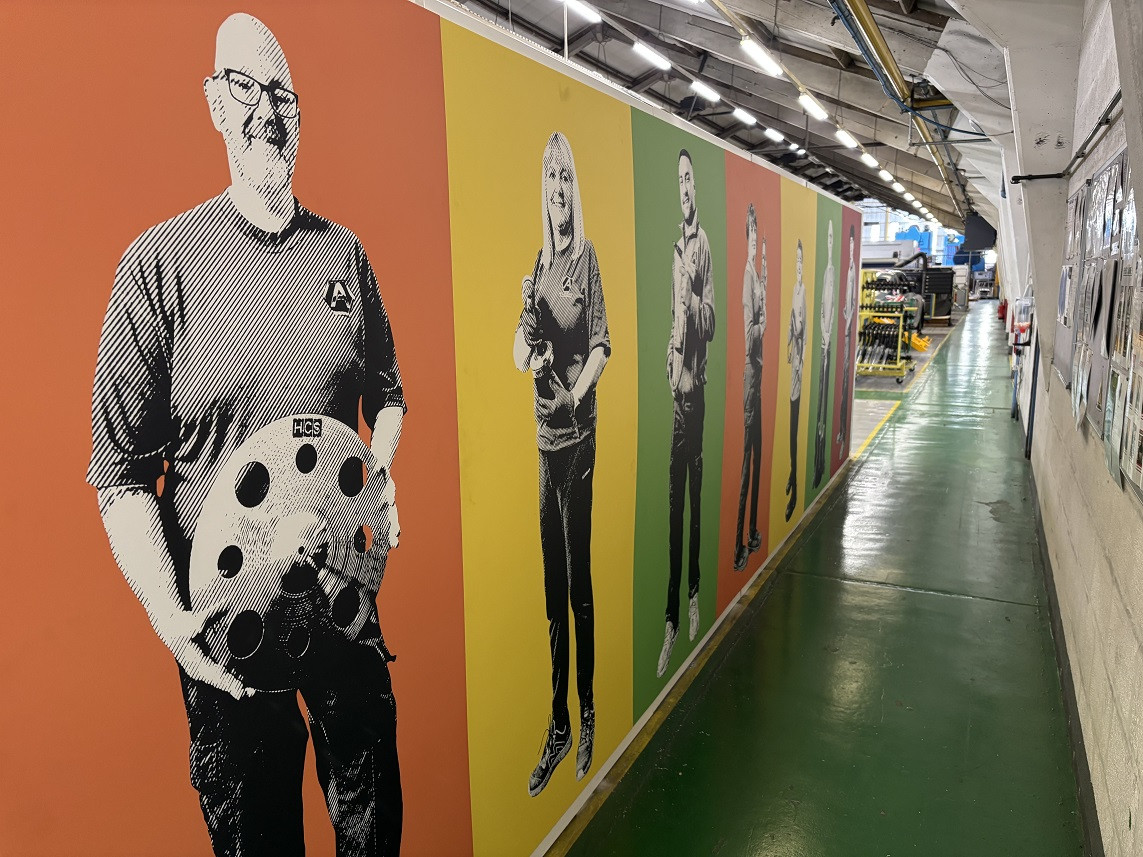
IP: By 2021 you were Group Operations Manager. No hesitation taking it on?
RL: None at all. I’d been working towards that level for years, so when Richard asked, it wasn’t a question of if - just when do we start. I’d come up through every layer, from apprentice to production manager, so I knew the people, the machines, the bottlenecks. More than that, I knew what we could be.
IP: For someone starting out here today who wants to grow the way you have - what’s the secret?
RL: Don’t wait for someone to hand you the next step. You’ve got to come in every day wanting to make things better - for yourself, for the team, for the business. Tell people where you want to go, and then back it up with the work. Learn from everything - the good and the bad - and build your own way. And never forget, you’re part of a family here. Look after each other, and you’ll go far.
From that pivotal handshake in 2020 to leading operations for hundreds today, Ryan’s story is one of persistence meeting the right moment. Now, that journey is recognised with his nomination in the Made Futures category of the Great100, a celebration of leaders shaping the future of UK industry.
Richard Lindoe calls him a natural leader, a steady hand in a time of change, a rising star with the potential to go further. He adds: “Ryan binds the team around him. That shows me we can build for our future - creating security of employment for the people who work with us.”
For Ryan, it’s about carrying the pride of the team and the trust of those beside him. Together, they show that being part of something bigger means the work is more than just work - it’s steady effort over years of change, linking those who came before with those still to come.
And it’s in those handshakes - bridging past and future, leader and team - that Armstrong’s tomorrow is built in steady hands and carried in a resilient spirit.
